10 ways David Bowie blew our minds
Things we thank the guitar-toting Starman for
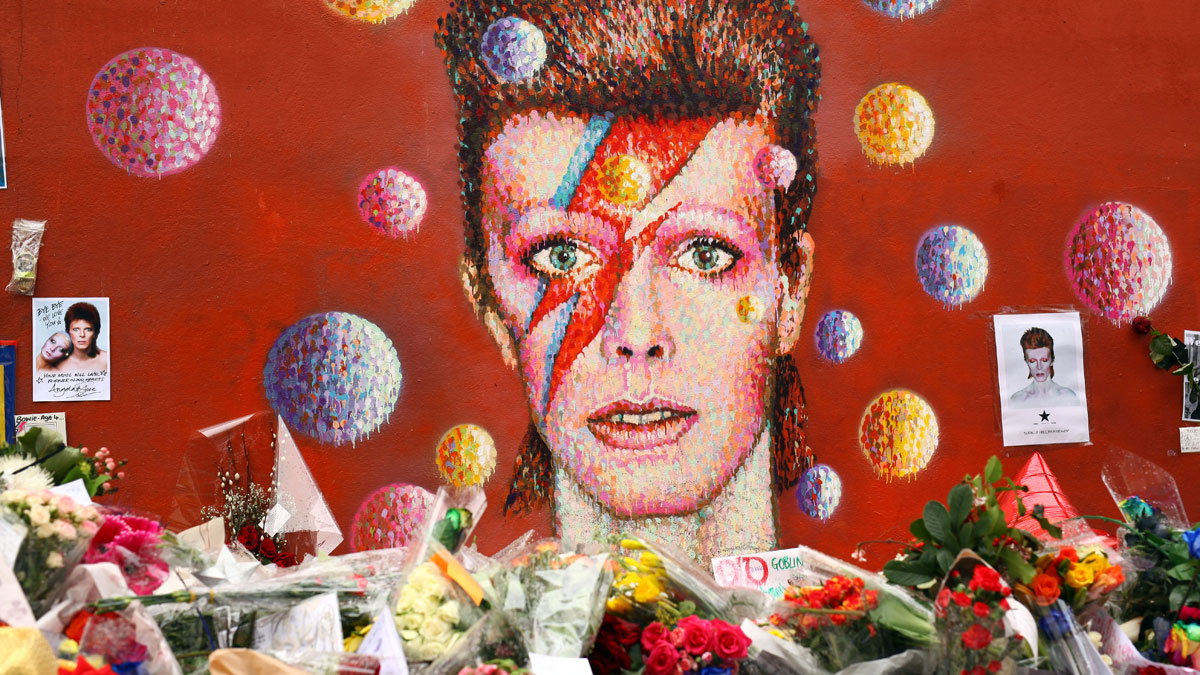
Introduction
David Bowie’s death on 10 January 2016 at the age of just 69 sent shockwaves through the music world and beyond. Here are 10 ways that The Man Who Fell To Earth changed it forever…
The man born David Jones in 1947 left behind a shape-shifting body of work that pulls down the pants of other back catalogues
The news hit like a punch in the gut. David Bowie: dead at 69. First came disbelief. Then a deep breath. Then, across the planet, we went to our stereos, our smartphones, or our guitars, and prepared to crank out a tune in tribute to an artist for whom terms such as ‘legend’ and ‘genius’ feel like faint praise.
But what to play? The man born David Jones in 1947 left behind a shape-shifting body of work that pulls down the pants of other back catalogues, and so many iconic guitar moments that they practically represent an encyclopedia. There are a thousand reasons to celebrate Bowie - here are just 10…
Don't Miss
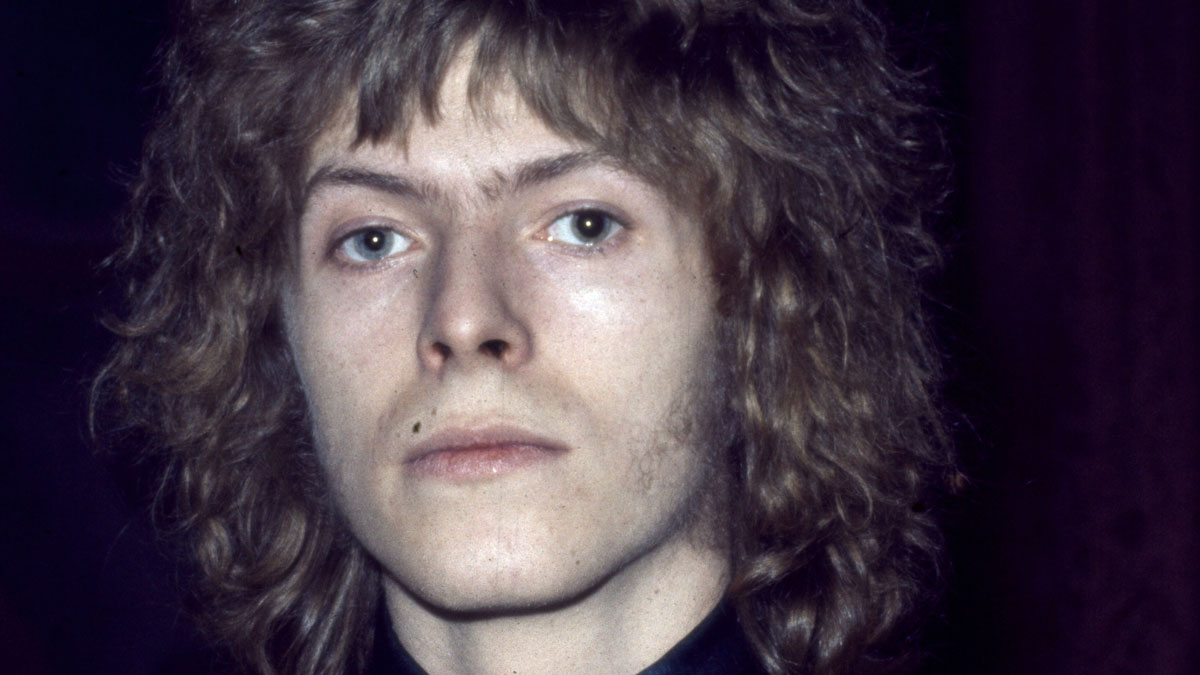
1. His fearless reinvention
Like a rock ’n’ roll Doctor Who, Bowie regenerated every few years, dissolving his band, tearing up his creative blueprint, striding into bold new waters and buggering the commercial risk.
While most bands churn out facsimiles of their hits, Bowie was a genre unto himself
From the artsy folk-rock of 1971’s Hunky Dory to the glam crunch of 1972’s Ziggy Stardust. The plastic soul of 1975’s Young Americans to the cold electronica of 1977’s Low. The post-punk textures of 1980’s Scary Monsters (And Super Creeps) to this year’s jazz-inflected swansong, Blackstar. While most bands churn out facsimiles of their hits, Bowie was a genre unto himself.
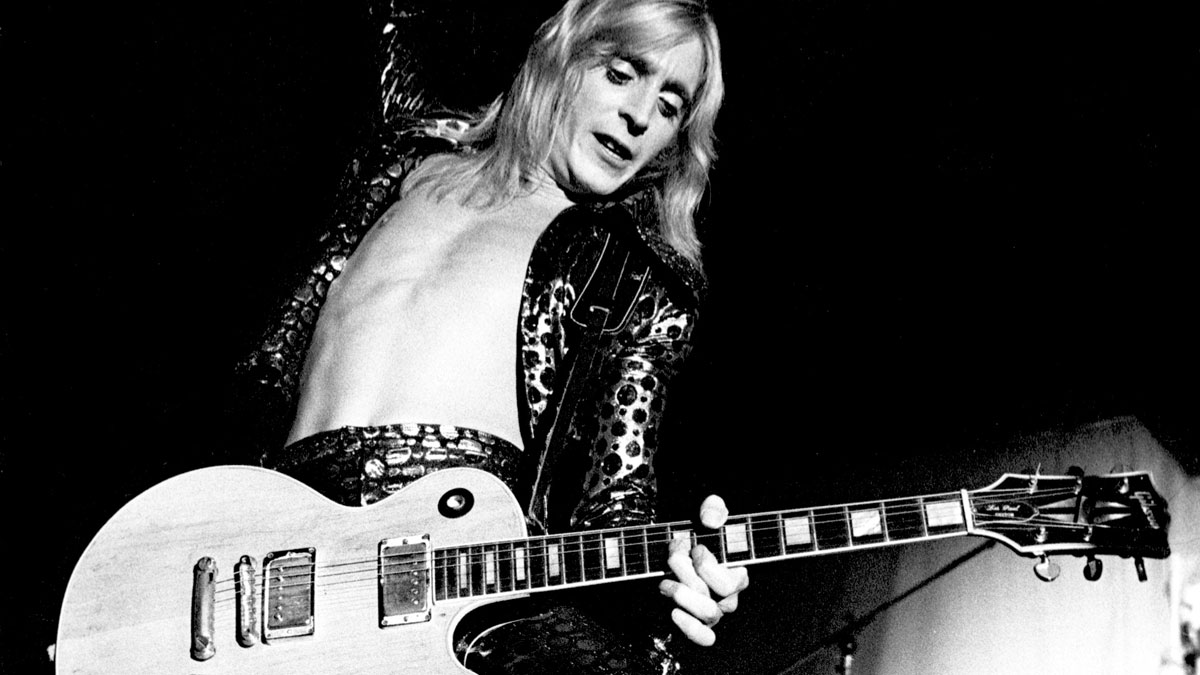
2. His partnership with Mick Ronson
After 1969’s Space Oddity, Bowie needed some rock ’n’ roll muscle to go with his dressing-up box theatrics - and he found it in the platinum-haired, classically-trained Spider From Hull, whose stripped-finish Les Paul blazed across those classic albums of the early 70s.
Bowie recognised Ronson’s own genius and let it breathe
Critically, while most visionaries would trample their sidemen, Bowie recognised Ronson’s own genius and let it breathe: witness the necktingling instrumental cascades of Life On Mars or the gravity-defying outro solo from Moonage Daydream. “When he realised he had permission to soar,” remembers producer Tony Visconti, “he did.”

3. His other incredible guitar wingmen, having broken with Mick Ronson
In 1973, Bowie eclipsed even blues godfather John Mayall with his knack for drafting in players who would light the fuse of his latest reinvention.
Throughout the 70s and 80s, the players on the Bowie payroll were astonishing
Throughout the 70s and 80s, the players on the Bowie payroll were astonishing. Carlos Alomar’s glassy soul chording on Young Americans. Earl Slick’s R&B grit on Station To Station. Robert Fripp’s eerie sustain on 1977’s anthemic Heroes (achieved by the King Crimson man positioning himself on strips of tape placed around the studio floor). Good luck getting that calibre of lineup by looking in the classified ads.
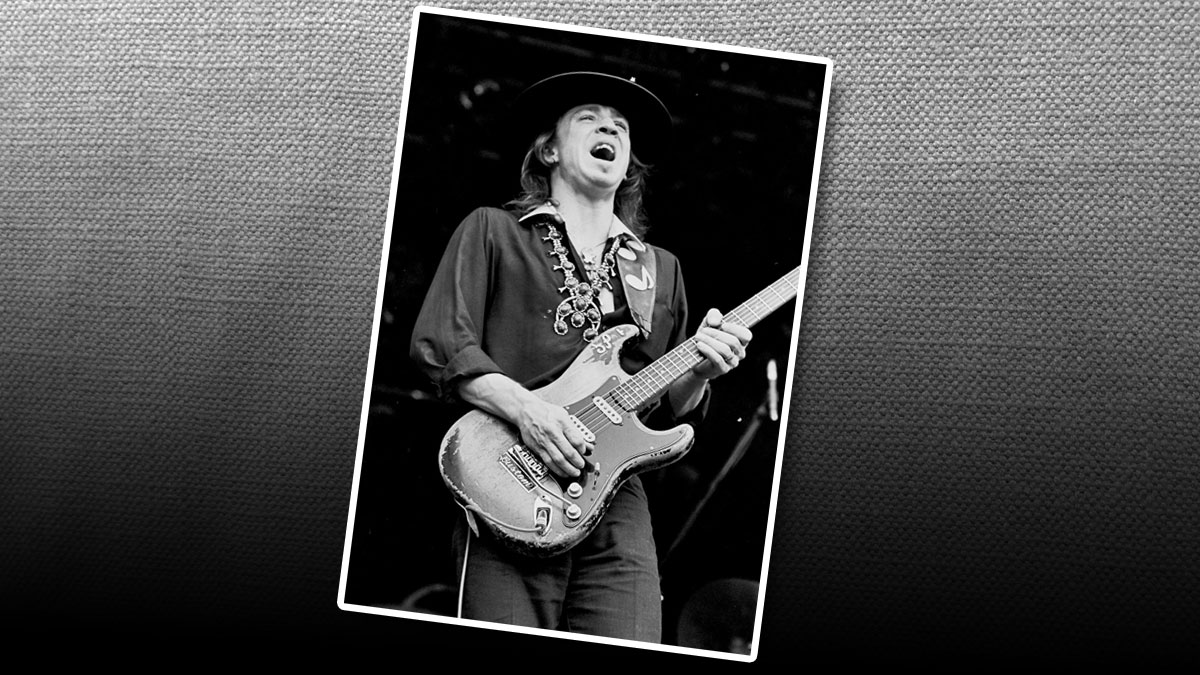
4. His nose for finding new talent
Bowie’s profile ensured he reeled in plenty of A-list cameos: check out John Lennon’s acoustic spot on Fame or Pete Townshend’s thunderous turn on Because You’re Young.
He had a nose for players on the cusp of greatness, approaching an unknown Stevie Ray Vaughan in 1982
Yet he also had a nose for players on the cusp of greatness, approaching an unknown Stevie Ray Vaughan at the Montreux Jazz Festival in 1982 and pairing the Texan’s stinging lead with Nile Rodgers’ clipped rhythm work on Let’s Dance and China Girl.
“That’s why Bowie is a genius,” the Chic man noted. “He was able to see the great fusion of styles between his background, my background and Stevie Ray’s.”
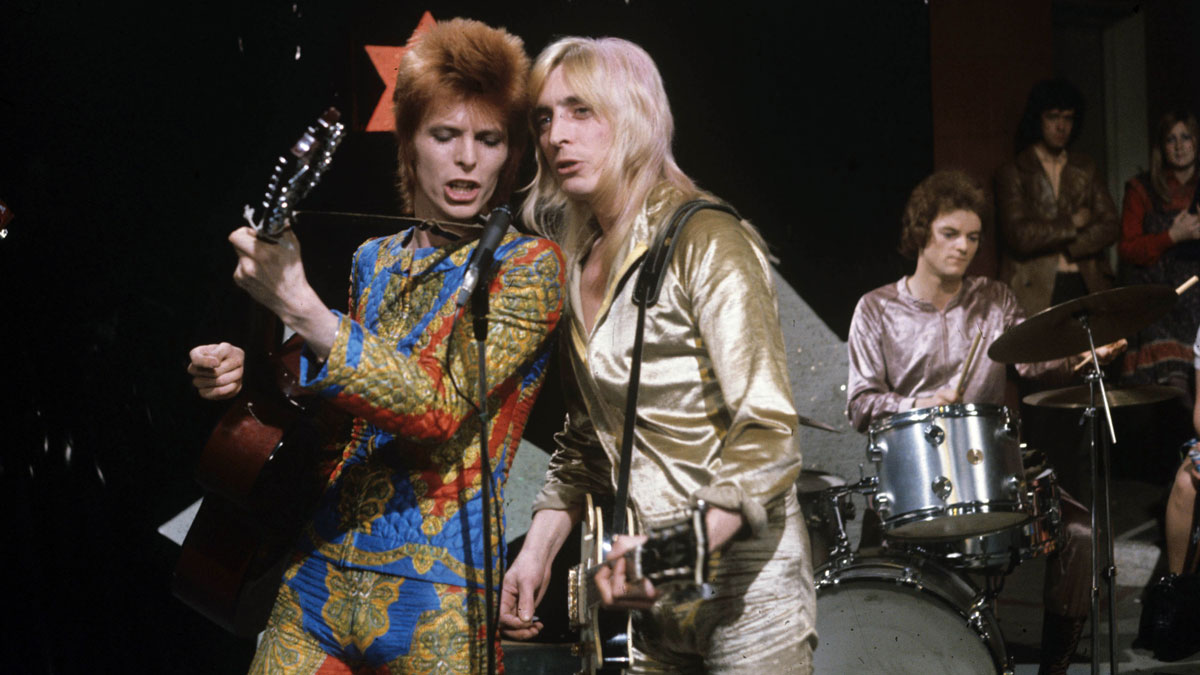
5. That 1972 performance on Top Of The Pops
In an era when rock was all about machismo, studded leather and armadillos stuffed down trousers - and a political landscape where homosexuality had only been legal for five years - Bowie heralded a sea-change.
That seminal moment fired the starting pistol for every androgynous band that followed
Simply by slipping an arm around Ronson’s shoulders and momentarily appearing ready to snog him while sharing the mic for a tea-time performance of Starman.
A thousand homophobe dads might have kicked in their TVs, but that seminal moment fired the starting pistol for every androgynous band that followed, from Suede to the Manic Street Preachers.
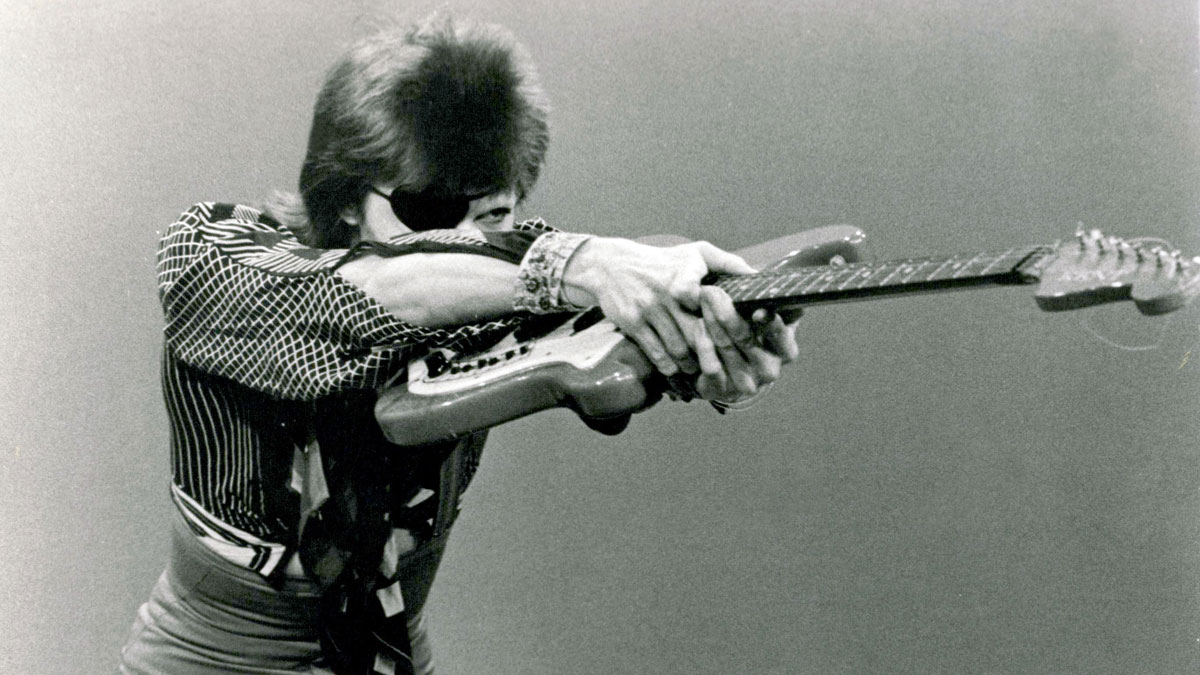
6. His avant-garde guitar playing
Bowie was no schooled guitarist: Tony Visconti described his playing as merely “adequate”, while Spiders From Mars bassist Trevor Bolder once sniffed that his acoustic demos were “very rough, and if you’d ever heard Bowie play guitar then you’d know how rough it was”.
He unveiled a ragged and visceral electric touch that was particularly thrilling on Rebel Rebel’s jagged riff
But when Bowie found himself shouldering six-string duties for 1974’s Diamond Dogs album, he unveiled a ragged and visceral electric touch that was particularly thrilling on Rebel Rebel’s jagged riff. “Some of my lines sounded almost proto-punk,” he recalled in 1997, “because of my inabilities as a virtuoso.”
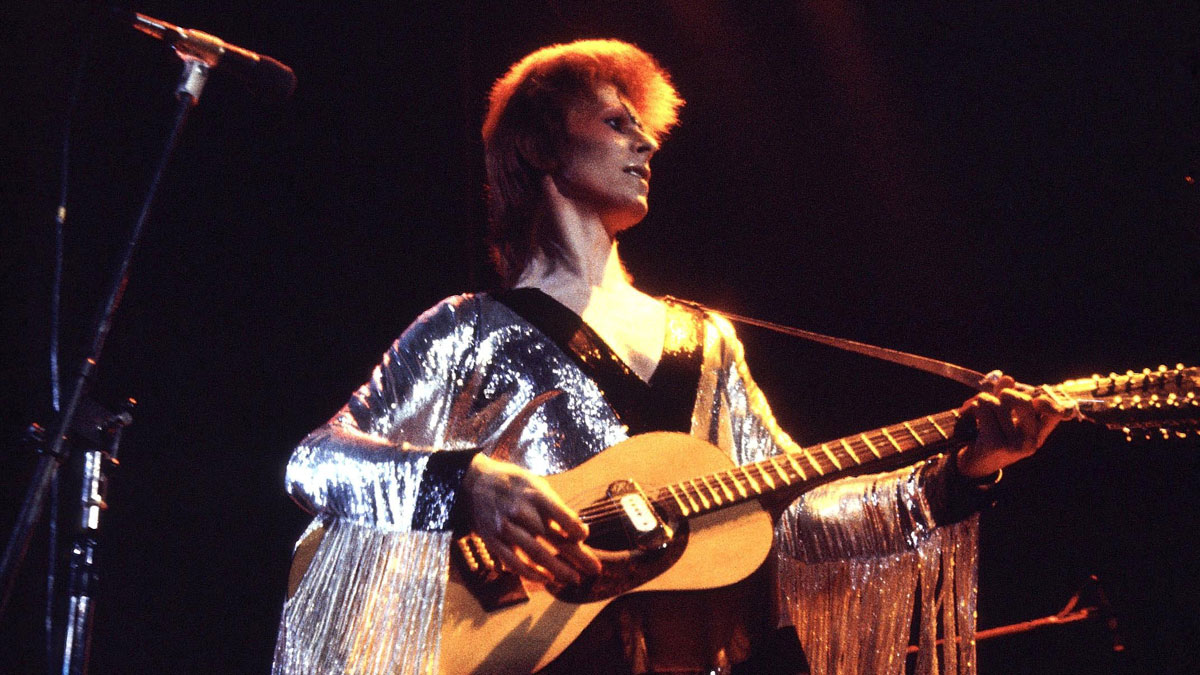
7. His revolutionary songwriting
Bowie managed to strike commercial gold despite some questing songwriting that challenged the form and burned the rulebook.
His major-to-minor shifts kept the mood on a knife-edge
His chord choices were frequently inspired (take that juddering verse sequence from Let’s Dance, which moved between a B7sus4, Bbm6, Gb6 and Bbm7).
His major-to-minor shifts kept the mood on a knife-edge (see Rock ’N’ Roll Suicide). On the flipside, he was sometimes able to squeeze unprecedented juice from little more than one vamped chord (try Golden Years). As Carlos Alomar recently told Rolling Stone: “He was so damn curious…”
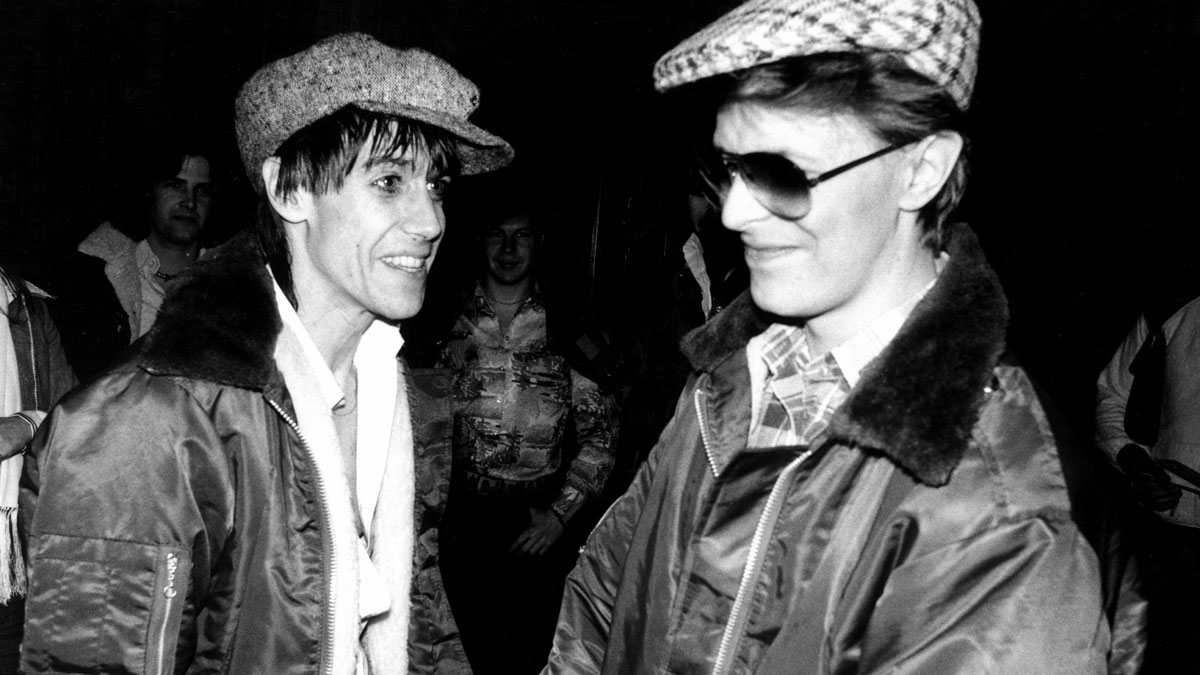
8. His amazing production work
Bowie’s absurdly prolific studio output wasn’t limited to his own catalogue: he also found time to produce and perform on a fistful of stone-cold 70s classics.
This guy salvaged me from certain professional and maybe personal annihilation - Iggy Pop
Coaxing the often-atonal Lou Reed to his most accessible album in 1972’s Transformer and keeping human walnut Iggy Pop on the (relative) straight-and-narrow with 1977’s Lust For Life.
“The friendship was basically that this guy salvaged me from certain professional and maybe personal annihilation - simple as that,” noted Iggy in The New York Times. “He resurrected me.”
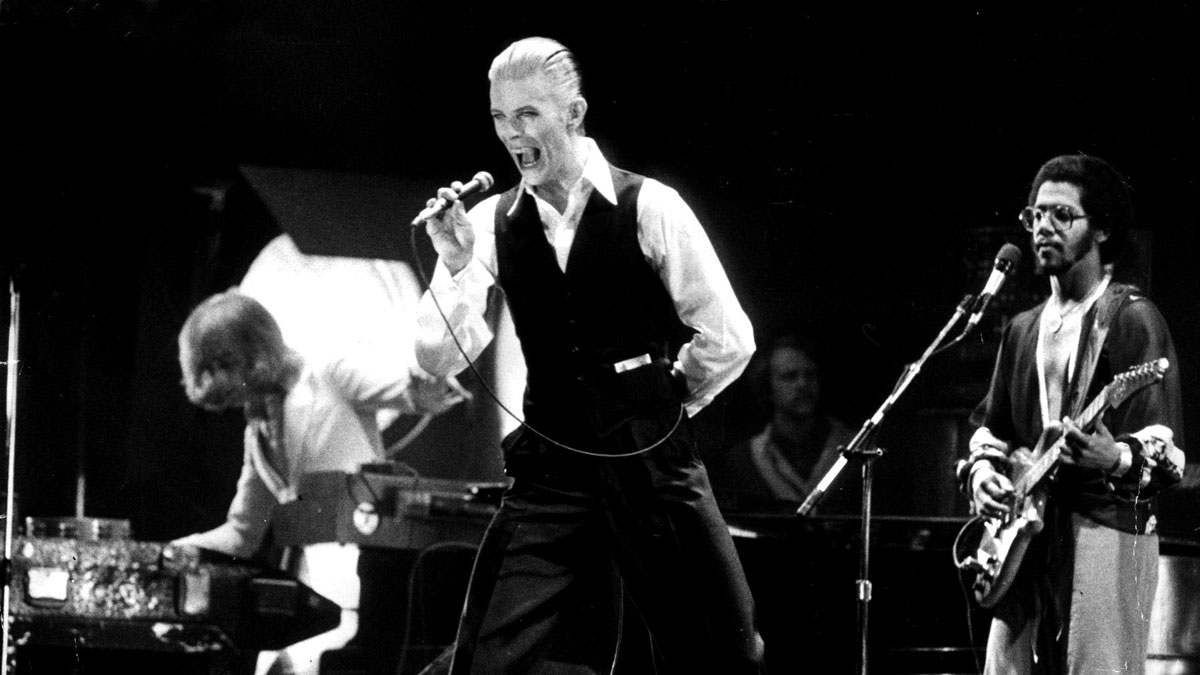
9. His mad characters
In an age when the average frontman takes the stage in Topman jeans, the theatrics of prime-time Bowie seem even more magnetic.
The line between Bowie and his personas sometimes grew dangerously blurred
Creations such as Ziggy Stardust (a fallen spaceman), Aladdin Sane (a lightning-bolted waif) and the Thin White Duke (a cokehoovering vampire fop) all became iconic in their own right, yet the line between Bowie and his personas sometimes grew dangerously blurred - most notably in the mid-70s, when the singer blamed the Duke for his phenomenal drug intake and apparent endorsements of fascism. “I was out of my mind,” Bowie later reflected on the period. “Totally crazed…”

10. His deathless legacy
The global reaction to Bowie’s death spoke volumes about his life.
We were left in no doubt that Bowie’s artistic ripples will continue to spread
As the tributes fired in from artists representing every genre and generation, from The National (“Impossible to overstate his influence”), to Marilyn Manson (“Diamond Dogs changed my life”), to The Libertines (“Congratulations on an exquisite life”), we were left in no doubt that Bowie’s artistic ripples will continue to spread.
Whatever else you do today, take this as your cue to revisit his astonishing catalogue - and be sure to follow the instruction on the original Ziggy Stardust sleeve: ‘To Be Played At Maximum Volume…’
Don't Miss
Total Guitar is Europe's best-selling guitar magazine.
Every month we feature interviews with the biggest names and hottest new acts in guitar land, plus Guest Lessons from the stars.
Finally, our Rocked & Rated section is the place to go for reviews, round-ups and help setting up your guitars and gear.
Subscribe: http://bit.ly/totalguitar


